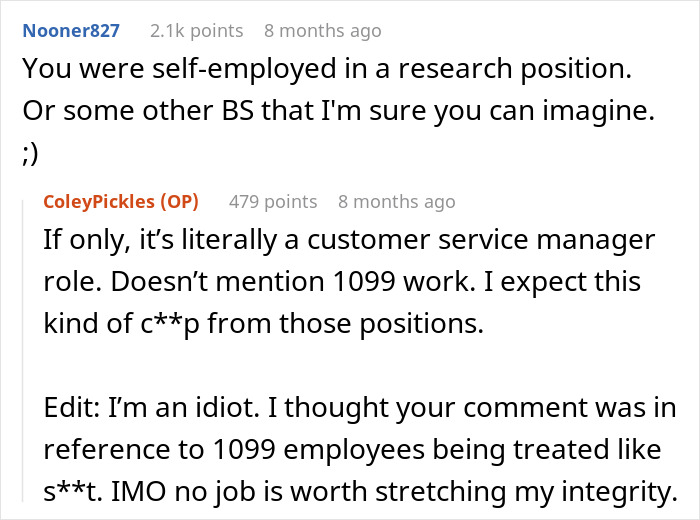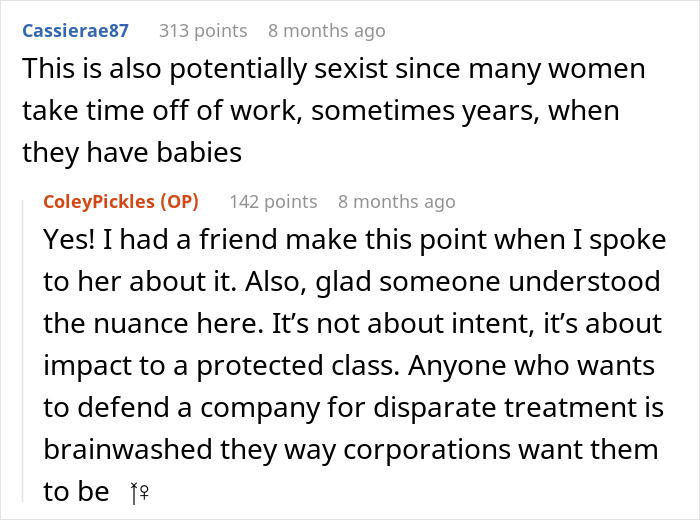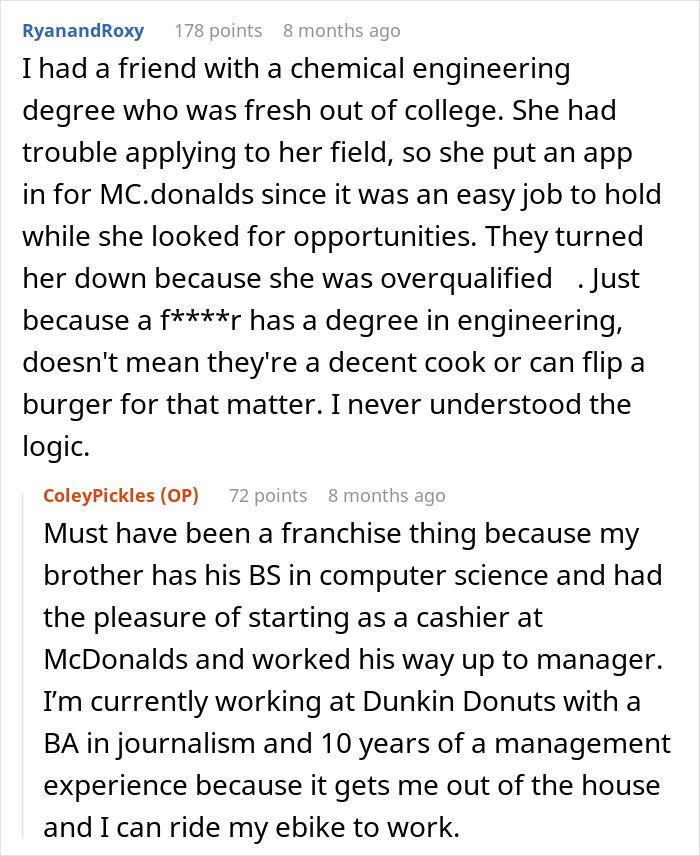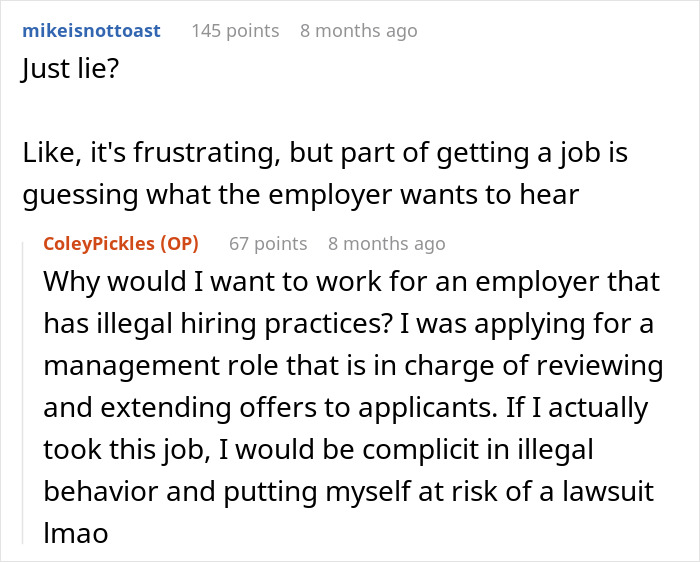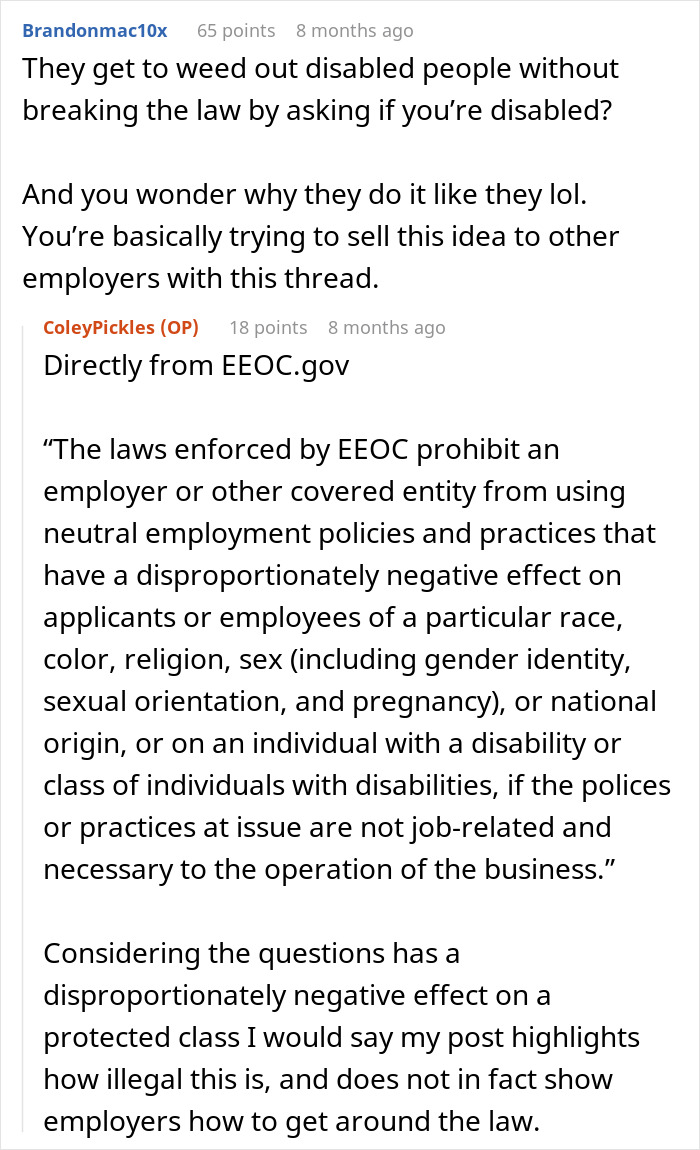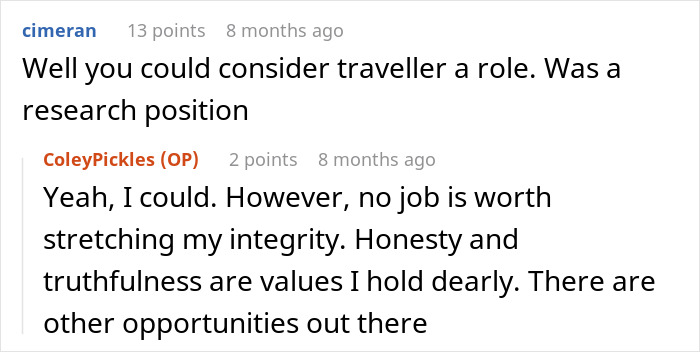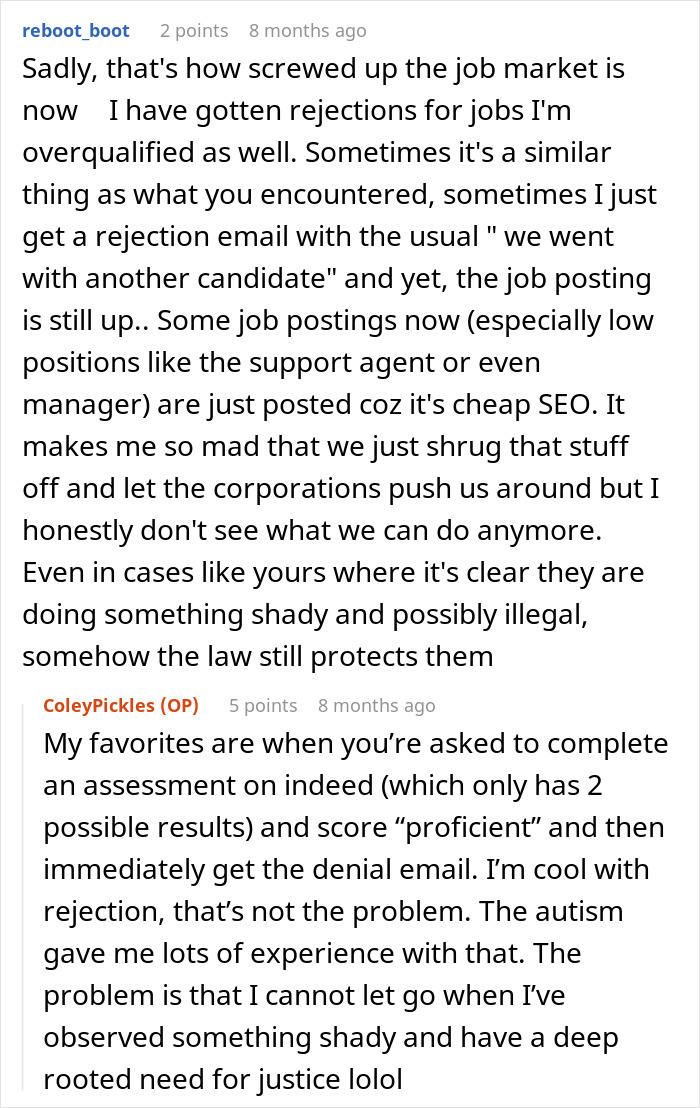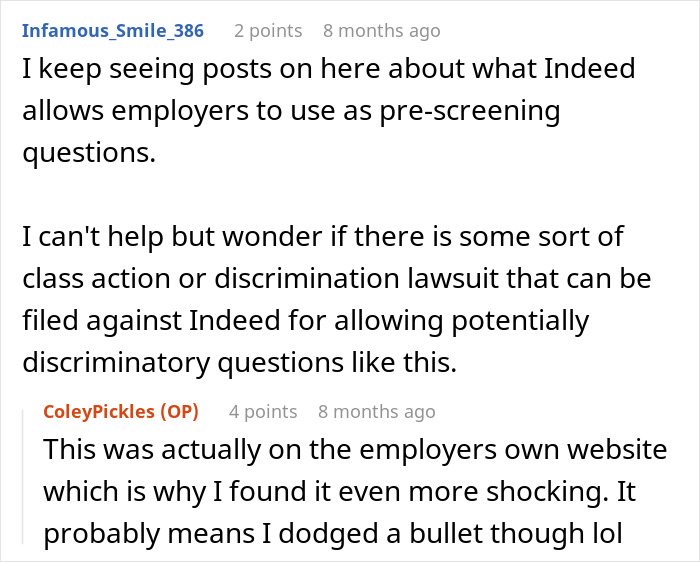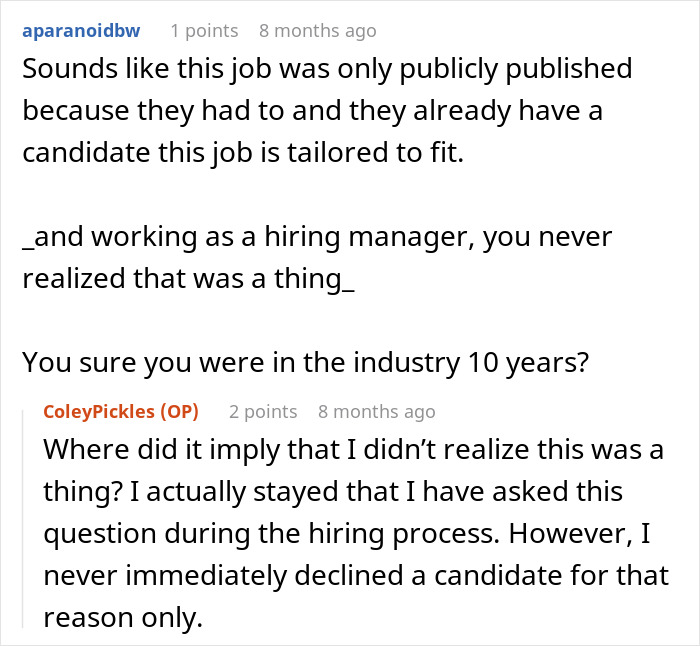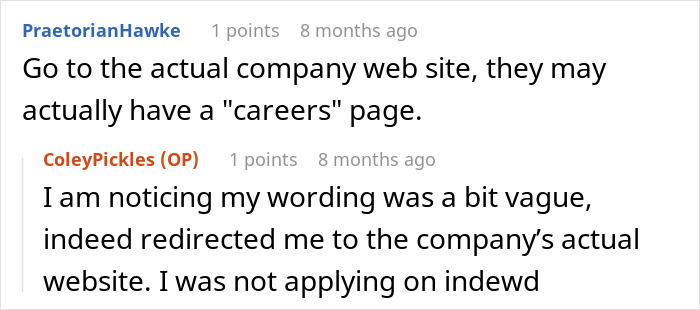Looking for a new job can be lengthy and tiring. You’ve got to make sure your resume is immaculate. Then there’s the search itself, and, if you’re lucky, the assessment tests, and then, finally, the interview. Some companies try to simplify the process by automating it. They start the application process with a simple questionnaire that should filter out applicants faster.
But when you’re hit with a ‘Thank you for your interest’ after the very first question, how would that make you feel as an applicant? Especially when the question doesn’t have anything to do with your qualifications. This woman was overqualified for her prospective job, but the automated application system rejected her after the very first question. Confused about whether that’s the standard in today’s job market, she shared her story with others.
Job hunting can be an arduous and exhausting process

Image credits: KATRIN BOLOVTSOVA / Pexels (not the actual photo)
This woman applied for a job where she exceeded the qualifications, but she got rejected for another absurd reason
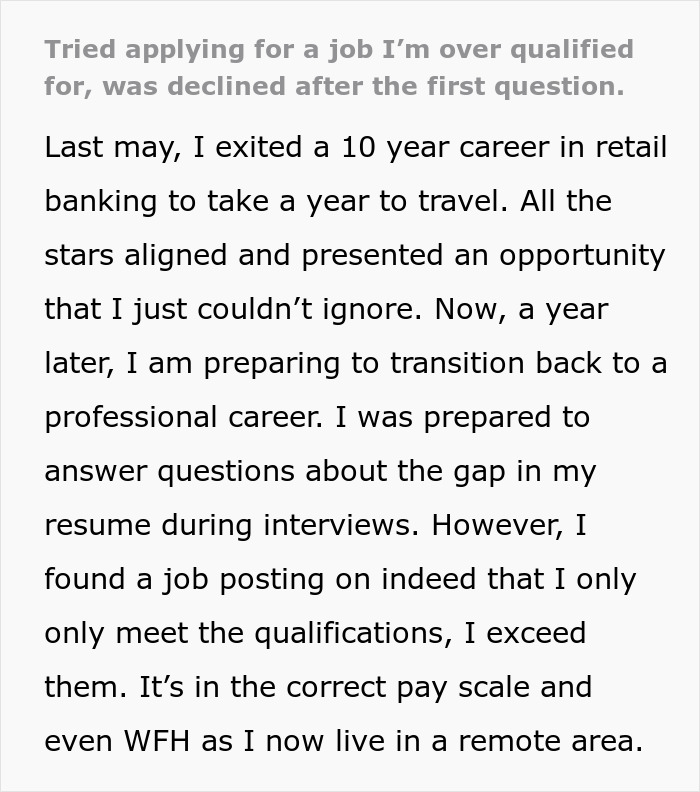
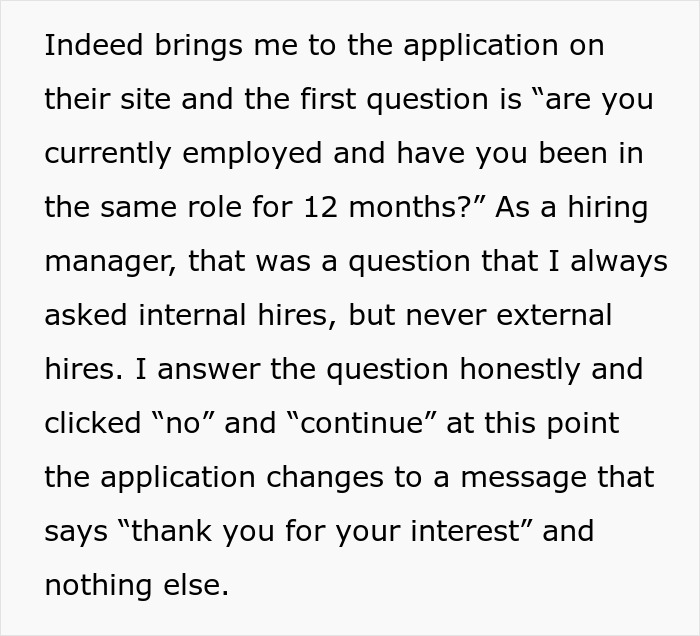
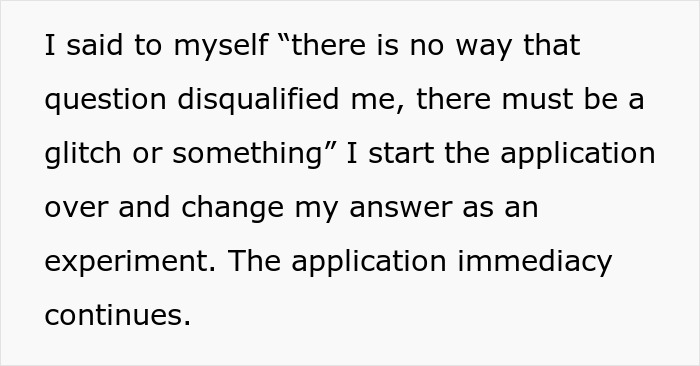
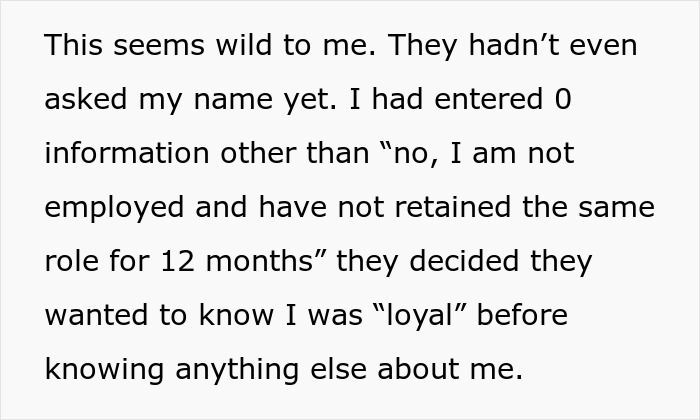

Image credits: Polina Zimmerman / Pexels (not the actual photo)
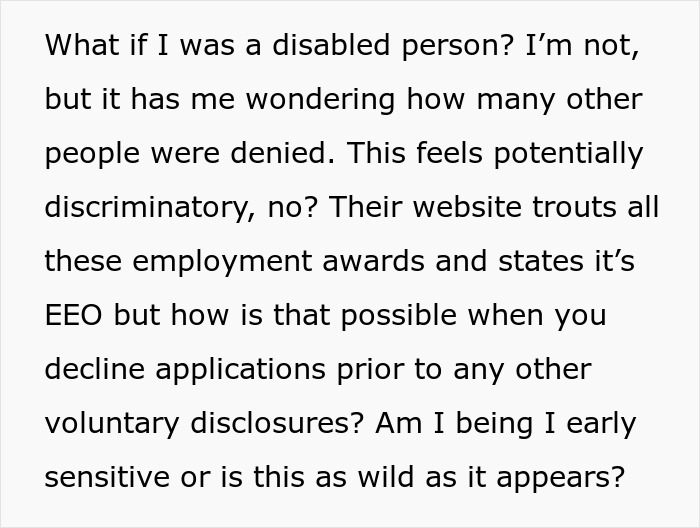
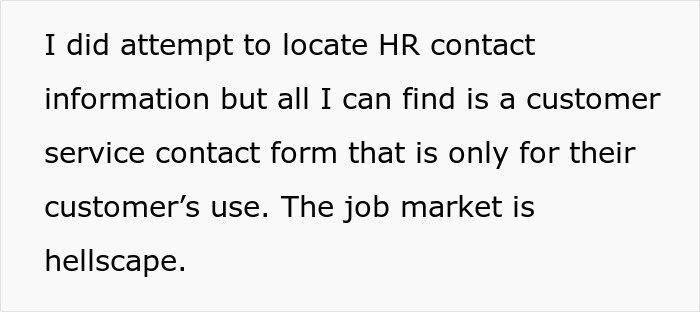
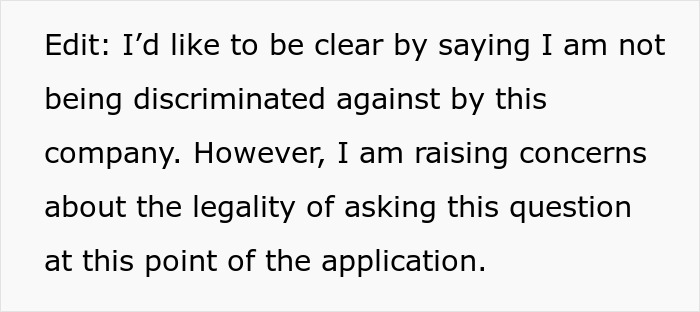
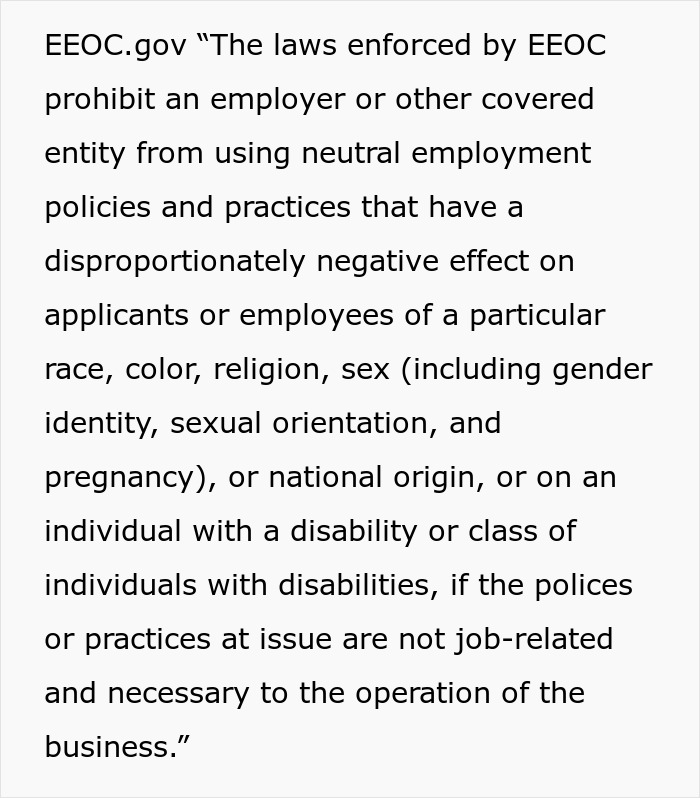
Image credits: ColeyPickles

Image credits: Porapak Apichodilok / Pexels (not the actual photo)
People might have employment gaps more often than we think
The woman in this story took a one-year break after 10 years of working in retail banking. She had a full-fleshed career for a decade, but because she took a gap year to travel, she was suddenly deemed ineligible for the job by the automated application system. As it turns out, gaps in one’s career are actually not that uncommon.
A survey commissioned by ethical hiring company Applied and social enterprise Women Returners and done by Censuswide revealed that one in three people take breaks in their career, both planned or unplanned. Many people also said they think gaps in employment can harm their careers and that they lied to recruiters in fear of not getting the job.
The Censuswide survey also showed that women are three times more likely to have career gaps. As the OP and some people in the comments pointed out, such a question about “loyalty” can be discriminatory, especially against women.
The burden of childcare is still disproportionately carried by women, as 38% of women respondents said they have taken six months or longer off work to care for their child. For men, the number was at a mere 11%. Interestingly, more men took career breaks for other reasons: mental and physical health (23%), travel (10%), and applying to other jobs (12%).

Image credits: cottonbro studio / Pexels (not the actual photo)
Gaps in one’s career shouldn’t be grounds for discrimination
The good news is that the attitudes toward people with gaps in their resumes might be changing. The EEOC, which the author of this story quotes in her post, is working to end discrimination toward those who might have breaks in their careers. That includes mothers, older workers, people with mental illness, and previously incarcerated people.
“Almost everything employers ‘know’ about applicants with an employment history gap is wrong,” Attorney Eve Hill said during a virtual roundtable hosted by the EEOC and the U.S. Department of Labor’s Office of Federal Contract Compliance Programs. “It’s time to rethink the assumptions we still carry from the work world of the past, so we can attract the best talent in today’s world.”
Essentially, it’s up to employers and recruiters to end this stigma. Experts advise companies to revise their hiring practices and be willing to hire people with employment gaps. Management consulting firm Stella Pop writes that long lists of desired skills might put perfectly qualified candidates off, so companies shouldn’t be afraid to drop them. “Even the best of the best could find the hoops to jump through not worth their while,” they claim.
The same goes for demands for 5-10 years of experience. The consulting firm points out that this can put off people who don’t have a formal education or the required experience but could excel at the job nonetheless. This rule applies to hiring people with a criminal record. “Evaluate potential new hires based on their skills, experience, and willingness to do the work, not their past,” they write.
Experts during the EEOC and the OFCCP virtual roundtable also said that companies should make such policies known through their marketing. This includes posting photos of older workers on their website and social media or asking a person with a mental illness to start a blog documenting their experiences of working at the organization.
Many people sympathized with her experience and called out the absurd state of the current job market
